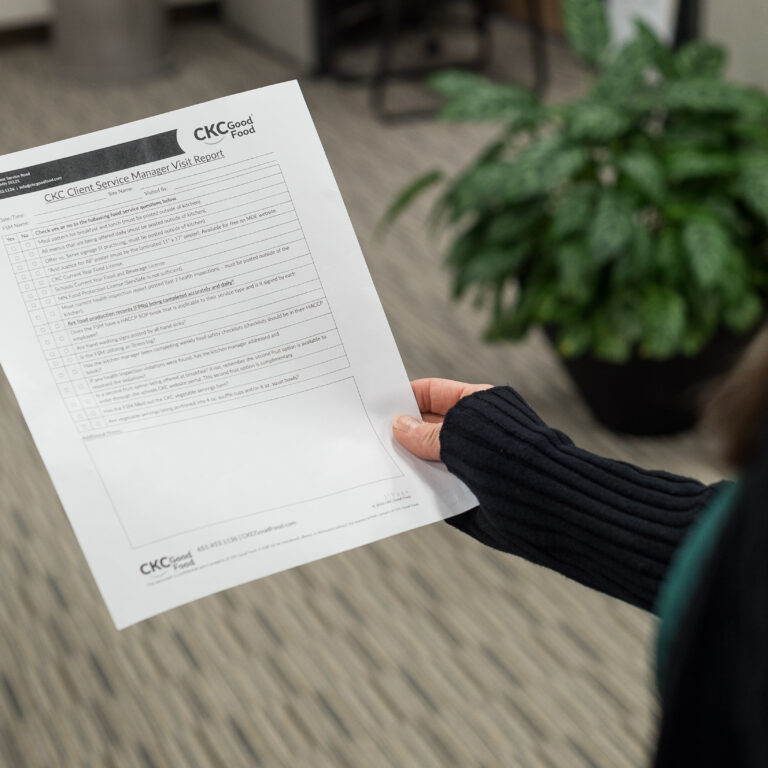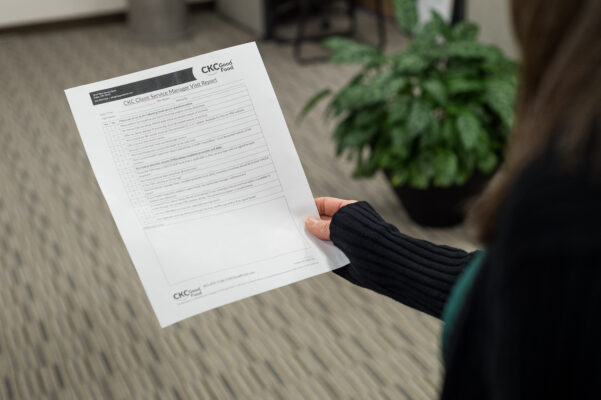- Use MDE’s template documents: School Food Authorities/food program sponsors must use the contract templates available on the MDE website. Schools that require a vendor to prepare reimbursable USDA meals and deliver them to the school should use the simplified IFB template. If you require a vendor to provide staff at your location, you must use the RFP template instead.
- Ask questions! Include questions in your RFP/IFB that will help you understand a company’s capabilities and how the company’s strengths aligns with your program’s priorities and goals. MDE’s IFB template is both a bid invitation and contract in one document. While the template is simplified, many IFBs include meaningful food service questions in the email or letter inviting vendors to bid. These questions can help schools determine which company will best meet their goals.
- Request extensive references. Most companies can provide a few solid references. Don’t be afraid to ask for 10 references. Ask for contact name, email, school and number of years the company has served that school.
- Require all questions from bidders in writing: Warning: Bidders can get aggressive. Don’t include your phone number on your RFP/IFB. All questions should be submitted to you by email, before the date stated in the RFP/IFB, allowing you to easily forward the questions and responses to all active bidding companies. It is required that all questions and answers be shared with any interested bidders.
- Pre-Proposal Meetings: It is your choice whether to hold a pre-proposal meeting. Most schools without a full-service kitchen forego this meeting. If you have a full kitchen and you serve over 250 students, we recommend holding a pre-proposal meeting for bidders to see your kitchen facilities. Alternatively, you could include photos of your kitchen prep and service areas and your equipment in your bid documents. Be sure to note pictures are enclosed.
- IFB Attachments (very important to know!): The IFB template has several attachments, of which only the first 5 must be completed. Attachment 6 and after are sample pages that are optional to use. The final page of the IFB template, which is optional to use, is a letter to bidders informing them they were not awarded the contract, which was awarded to another vendor based solely on price. This has been very confusing for schools, particularly when they ask qualifying questions to help determine the vendor best suited to their needs. You do not have to use the provided letter regarding bid results.
- Bid Bonds: One of the IFB sample pages includes a request for a 5% bid bond based on the estimated total yearly costs of the contract. These bid bonds, which are paid to insurance companies and can cost thousands of dollars, are not required and may be figured into your fixed meal cost. We recommend you request a bid bond if you want assurance of a company’s financial well-being.
- Choose Bidder Based on Cost AND Capabilities: Cost is extremely important, however, if a company does not provide meals that students will eat, saving a small amount per meal can actually bankrupt your food service program. Page 4 of the IFB template, item #5, states: “Awards, if any, shall be made to a qualified and responsible bidder whose bid is responsive to this solicitation. A responsible bidder is one who is [sic] financial, technical, and other resources indicate an ability to perform the services required by this solicitation.” This language means SFAs are responsible for selecting a vendor that best meets their needs based on financial, technical, and other resources, not solely based on price. By choosing a company with great references, consistently high participation rates and a proven track record, your food service program will generate more revenues than it would with a lower bidder that doesn’t offer meals that appeal to students. The goal is to get students to eat! Choose a company that offers what students love and your program will thrive!
All posts
Apr 9, 2025
Tips for a Successful Contract Bid Process
Bid season is here! If your vended meal or food service management contract expires at the end of this year, now’s the time to pull together your Invitation for Bids (IFB) or Request for Proposals (RFP). Remember, unless you have had a significant change in scope to your food service program or are unhappy with your current vendor/food service management company, your current contract can be renewed for four consecutive years you need to bid your contract again.


